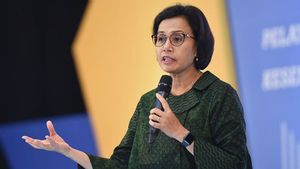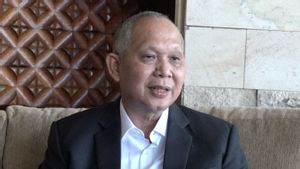JAKARTA - The World Bank (World Bank) predicts the global economy will grow stably at 2.6 percent in 2024 amid geopolitical strain fluctuations and high interest rates. "Global economic growth is projected to remain stable at 2.6 percent this year, despite geopolitical tensions and high rate rates, before rising slightly to 2.7 percent in 2025-2026 as the latest global Economic Prospect Report from the World Bank cites Antara. Global economic growth is projected to increase to an average of 2.7 percent by 2025-2026, as trade growth and broad but measurable policy easing supports activity. Despite improvements in the short-term growth prospects, such prospects remain weak. According to the World Bank, at t 2024-2025, global growth is expected to be below the average growth in 2010 in nearly 60 percent of countries, representing more than 80 percent of global outputs and populations. While world inflation is expected to slow down compared to previous assumptions, that is an average of 3.5 percent in 2024. Reflecting on the continued inflationary pressure, central banks will likely remain cautious in carrying out policy easing. The magnitudes that have occurred in recent years have hampered efforts to pursue the gap in revenue per capita, with nearly half of developing countries experiencing a decline compared to developed countries in 2020-2024. Amid rising rates of conflict, prospects in many vulnerable countries remain weak. On the other hand, risks remain more balanced, but negative risks still dominate, including geopolitical tensions, trade fragmentation, higher interest rates for long-term inflation in the midst of persistent inflation, and natural disasters related to climate change.
SEE ALSO:
Global policy efforts are needed to maintain trade, support environmentally and digitally friendly transitions, provide debt relief, and increase food security. On the other hand, high debt and high debt payment costs will require policymakers in developing countries to balance large investment needs with fiscal sustainability. To achieve development goals, policies are needed to increase productivity growth, increase public investment efficiency, build human resources, and close the gender gap in the labor market.
The English, Chinese, Japanese, Arabic, and French versions are automatically generated by the AI. So there may still be inaccuracies in translating, please always see Indonesian as our main language. (system supported by DigitalSiber.id)
















